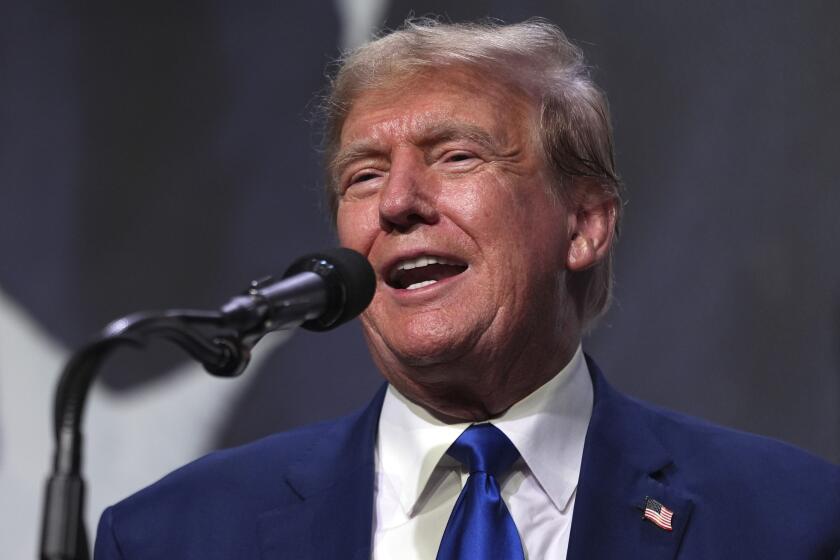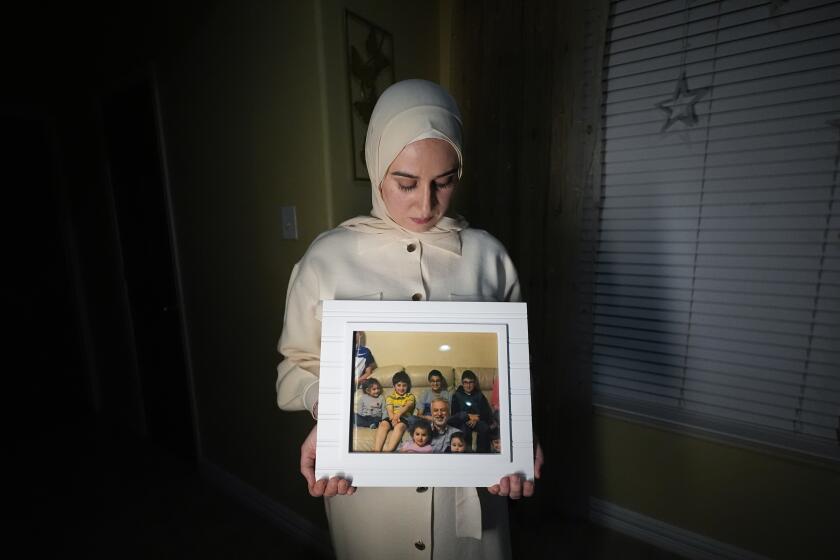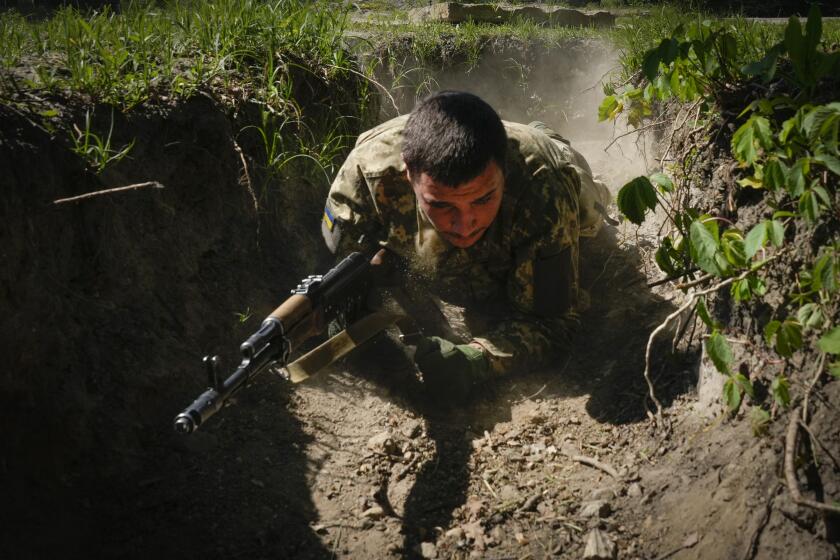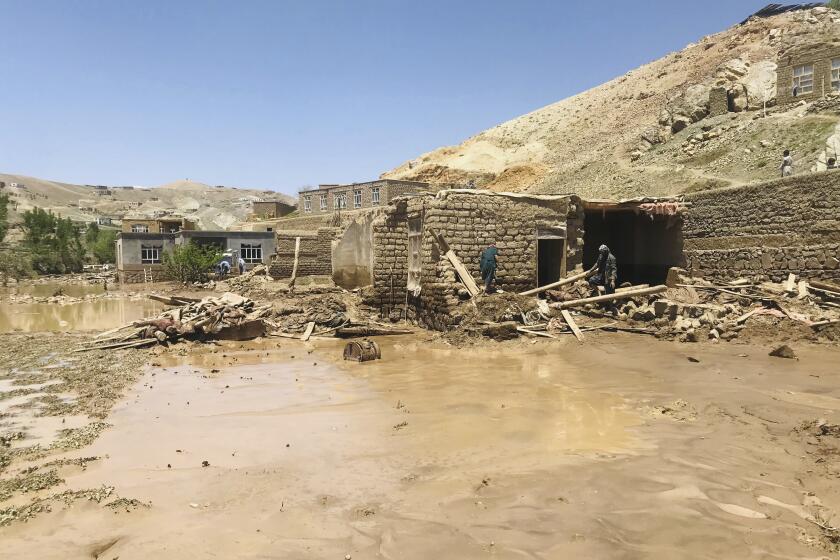Resist Lure of Cities, Pope Tells Argentines
Pope John Paul II today told a crowd of gauchos and other rural Argentines to resist the temptation of city lights and organize to improve life on the farm.
During an outdoor Mass in this port of Argentina’s lush pampas breadbasket and pastureland, the pontiff tried to encourage rural workers who are suffering from depressed world prices for grain and beef--staple Argentine exports.
“The inferior conditions that certain sectors of the rural world suffer certainly will be overcome,” said the Pope, urging farm workers and ranch hands to join together to press landowners for better wages and living conditions.
His listeners, many of them wearing the traditional baggy trousers and coin-studded broad belts of the Argentine cowboy, applauded their approval.
John Paul spoke in Bahia Blanca, 420 miles south of Buenos Aires, a day after arriving in Argentina from a sometimes-tumultuous six-day trip to neighboring Chile.
Rural workers’ pay, the Pope said, “should be based on the dignity of the working man and his personal needs and not on the cold and sometimes inhuman law of the market.”
At one point during the Mass, church workers opened several yellow wicker baskets and dozens of white doves flew out.
John Paul advised his audience to stick things out on farms and ranches instead of migrating to large cities, “where at times conditions are even worse.” Rural Argentines who seek better lives in cities, especially Buenos Aires, often wind up in slums.
After the Mass, the pontiff headed for Viedma, at the northern edge of the vast Patagonian scrubland. The city is slated to be developed in the coming years into Argentina’s new capital as part of an effort to promote provincial development.
On Monday in Buenos Aires, the capital, throngs waving yellow-and-white Vatican banners and blue-and-white Argentine flags cheered as the Pope arrived and met with President Raul Alfonsin, a civilian elected in 1983 after seven years of repressive military government. (Story on Page 12.)
More to Read
Start your day right
Sign up for Essential California for news, features and recommendations from the L.A. Times and beyond in your inbox six days a week.
You may occasionally receive promotional content from the Los Angeles Times.






